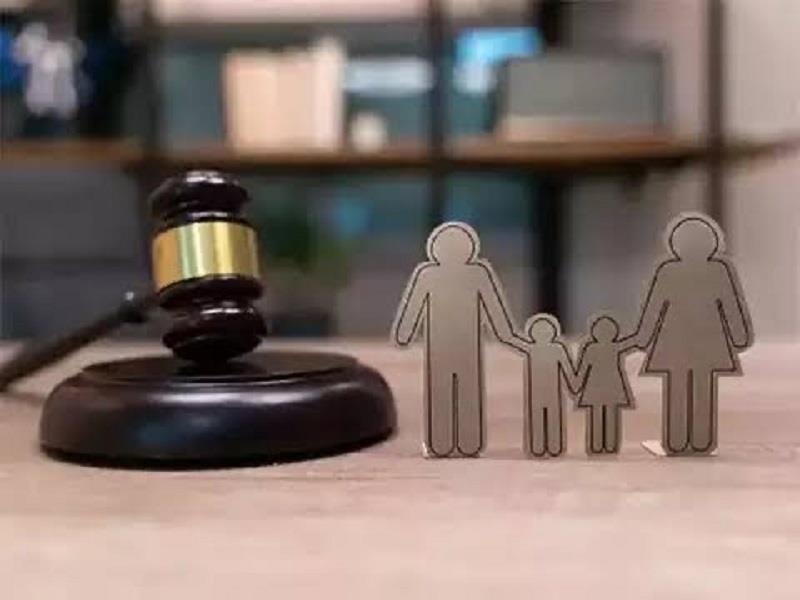(MENAFN- Kashmir Observer) Ayaan's Story - And the Silence That Followed
Take the case of Ayaan (name changed), an 11-year-old boy from Srinagar. When his mother fled their home to escape physical and emotional abuse, she left behind more than a broken marriage. She unknowingly left behind her children's rightful share of their father's property.
Read Also
Domestic Violence Survivors May Soon Get To Stay At Govt-Run Centres For 10 Days
Domestic Violence Act: SC Slams J&K, Other UTs, States For Not Filing Status Reports
At the mediation centre, where her case was diverted instead of going to court, the pressure to“settle amicably” was immense. Without legal counsel and fearing social stigma, she signed a mutual separation. No mention was made of maintenance for the children, no agreement was reached about inheritance rights, and no steps were taken to secure residence or education support for Ayaan or his younger sister.
Shortly after, her husband transferred family property to his brother, effectively disinheriting his own children.
Mediation Centres: Peacekeeping or Burying Rights?
Mediation centres in Kashmir, though set up with good intentions, often fall short of justice when it comes to domestic violence cases. Reconciliation is prioritised over responsibility. Women are told to“adjust,” and children's futures are reduced to afterthoughts.
Crucially, these centres:
. Do not verify whether maintenance and property rights are being addressed.
. Lack protocols to protect the child's inheritance or financial security.
. Often operate without trained legal professionals or trauma-informed counsellors.
. Pressure survivors into settlements that favour abusers and overlook long-term needs.
The Cultural Trap: Honour vs Justice
In Kashmiri culture, izzat (honour) remains a powerful force. But this honour is unevenly distributed - it demands silence from women and compliance from children, while allowing men to escape accountability. When a woman leaves a violent home, she is expected to walk away quietly, often without any financial security, dignity, or legal protection.
The same cultural conditioning that tells women to“adjust” also denies their children access to property - even though Islamic law grants them fixed shares in their father's estate.
What the Law Says - and Where We Fail
Legally, children and women have multiple protections:
. Section 125 CrPC mandates that fathers pay maintenance for children.
. The Protection of Women from Domestic Violence Act (PWDVA), 2005 offers residence, protection, and financial relief.
. Muslim Personal Law (Shariat Application Act, 1937) clearly outlines inheritance rights for children - both sons and daughters.
But when these legal tools are not used - either due to lack of awareness or systemic neglect - the result is what we see in cases like Ayaan's: children left with no home, no inheritance, and no legal recourse.
A Call for Structural Change
To move forward, we must reimagine our mediation and legal systems. Some immediate reforms that can be implemented:
1. Mandatory Legal Representation: No woman should go through mediation without a lawyer, especially when children's rights are involved.
2. Child-Centric Agreements: Settlements must address maintenance, inheritance, and residence of children as non-negotiable elements.
3. Inheritance Safeguards: Property transfers made post-separation should be reviewed to prevent unlawful disinheritance.
4. Stronger Court Oversight: Courts must play a proactive role in ensuring that children's inheritance and financial rights are upheld, even in out-of-court settlements.
5. Training for Mediators: Cultural sensitivity must be balanced with legal knowledge. Mediators must be trained to identify coercion and trauma.
The Future They Deserve
The right to a safe home, financial stability, and a fair share in inheritance should not be lost when a mother walks away from abuse. We must stop asking survivors to pay the price for their freedom with their children's futures.
Children like Ayaan are not collateral damage - they are citizens with rights. If our society and institutions fail to protect those rights, we are not just failing women - we are failing the very foundation of our future.
Views expressed in the article are the author's own and do not necessarily represent the editorial stance of Kashmir Observer
The author is an India-based legal professional and expert facilitator on workplace rights and harassment laws across South Asia, Europe and the United States. She specializes in human rights, women's rights and alternative dispute resolution, holding degrees from the University of Kashmir and O.P. Jindal Global Law School
Follow this link to join our WhatsApp group : Join Now




















Comments
No comment